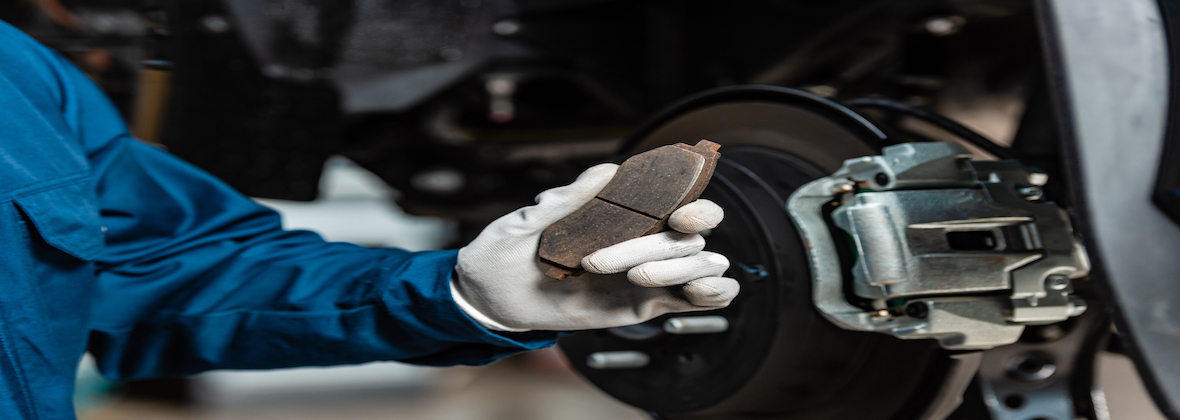Car brakes and braking systems for cars

When it comes to the safety of your vehicle, your vehicle’s braking system plays a very crucial role. They are the most overlooked part of your car. As once your vehicle is in motion, there is nothing more important than having the ability to stop your vehicle quickly and efficiently.
Just like your ankle bone is connected to your foot bone, your brake system also relies on each connected brake part to function successfully.
So, how do your car brakes work?
The brakes in your vehicle are not specifically what is stopping the car. Instead, they control the wheels from turning, which in turn slows down your vehicle and thus brings it to a stop.
When you press your brake pedal, your car transfers the force from your foot to its brakes through brake fluid. The brakes thus transmit force to the tires using friction, and finally, the tires send that force to the road using friction.
There are several components of your vehicle braking system. These include – master cylinder, brake calipers, brake fluid and cylinders, servo, disks, drums, pads, and shoes. All the components are interlinked by a series of brake hoses and brake pipes.
Why does your car shake when you brake?
A shaking car indicates that there may be a severe problem with your brakes. While you should take any engine fault or other parts problem seriously, it’s foremost that you also take extra care to make sure the brakes are working correctly. Some common causes for shaking of your car are –
- Worn brake pads – If your car’s brake pads are worn out, then it may be the reason your car shakes. When you press down the pedal of your vehicle and hear some grinding noises, it may be because of the brake pads. The main reason for worn out brake pads is them overheating, as when it overheats; the resin may not distribute evenly; this issue can cause your brakes to shake or vibrate.
- Brake rotor and disc issues – Over time, when the surface of brake rotors wears down, they become uneven. As a result, the brake pads’ ability to grab worsens, which causes the pedal and steering wheel to shake. So, if you feel such a condition, then it’s time to get your car checked.
- Infrequent driving – Your driving style and the quality of your brake pads help decide your brake’s life. Particularly in winter, if you drive your car infrequently, then brake pads rust. This can cause the brakes to corrode. By this, the rotor of your vehicle becomes uneven, and you may hear strange noises from your car when braking.
- Stocking of debris – If debris gets stuck in the brake components it may cause your car to shake. As a result, this causes friction between your brake pads or the rotor. If debris obstructs the brake pad, it affects the pads’ ability to grip correctly, which in turn causes your car to shake as the brakes can’t function properly.
- Dry guide pins – If you notice your steering wheel shaking when you try to stop your car, it could be because of dry guide pins. These pins are part of the brake calipers. These are responsible for guiding the brake pad to the rotor in your vehicle. These pins must be clean and lubricated to work correctly. But when they become dry, they can cause the brake pads to push down on the rotor at the wrong angle.
When to change your car brake pads?
As brake pads are an essential part of your car’s braking system, keeping them in good condition is necessary for your safety. Some symptoms that let you know that it’s time to change your brake pads include:
- Grinding sound when braking -If you’re experiencing a grinding noise in your car while you’re applying pressure to the brake pedal, your brake pads need to be replaced soon. Some brake pads have built-in metal wear indicators designed to make a loud noise, thus alerting you that it’s time to replace.
- Taking longer to stop – Your car brakes need to be checked out if you’re experiencing less than ideal stoppage times while applying brakes. It may be because of low brake fluid. To properly understand what’s going on with your brakes, you can visit your nearby TIRECRAFT to ensure you don’t lose all braking abilities.
- Brake pad indicator light comes on – Nowadays, most modern vehicles come with a brake warning light that appears on the car’s dashboard. If you’re seeing a brake warning light and your parking brake isn’t engaged, then it’s time to have a check-up of your vehicle to diagnose the issue.
- Brake pads appear to be thin – You can check on your brake pads by visually inspecting them. For this, you need to look between the spokes of your wheels and locate your brake pad. If it appears thin, you’re probably due for a set of new brake pads.
Have your braking system checked
In summary, if your vehicle is making any of the symptom warnings listed above it is recommended you book an appointment with your local TIRECRAFT shop. Our team of certified professionals can carefully inspect the car brake system to determine what is causing your vehicle to shake while you’re out on the road. Trust TIRECRAFT to get you back on the road with a smooth, stable, and comfortable ride.

